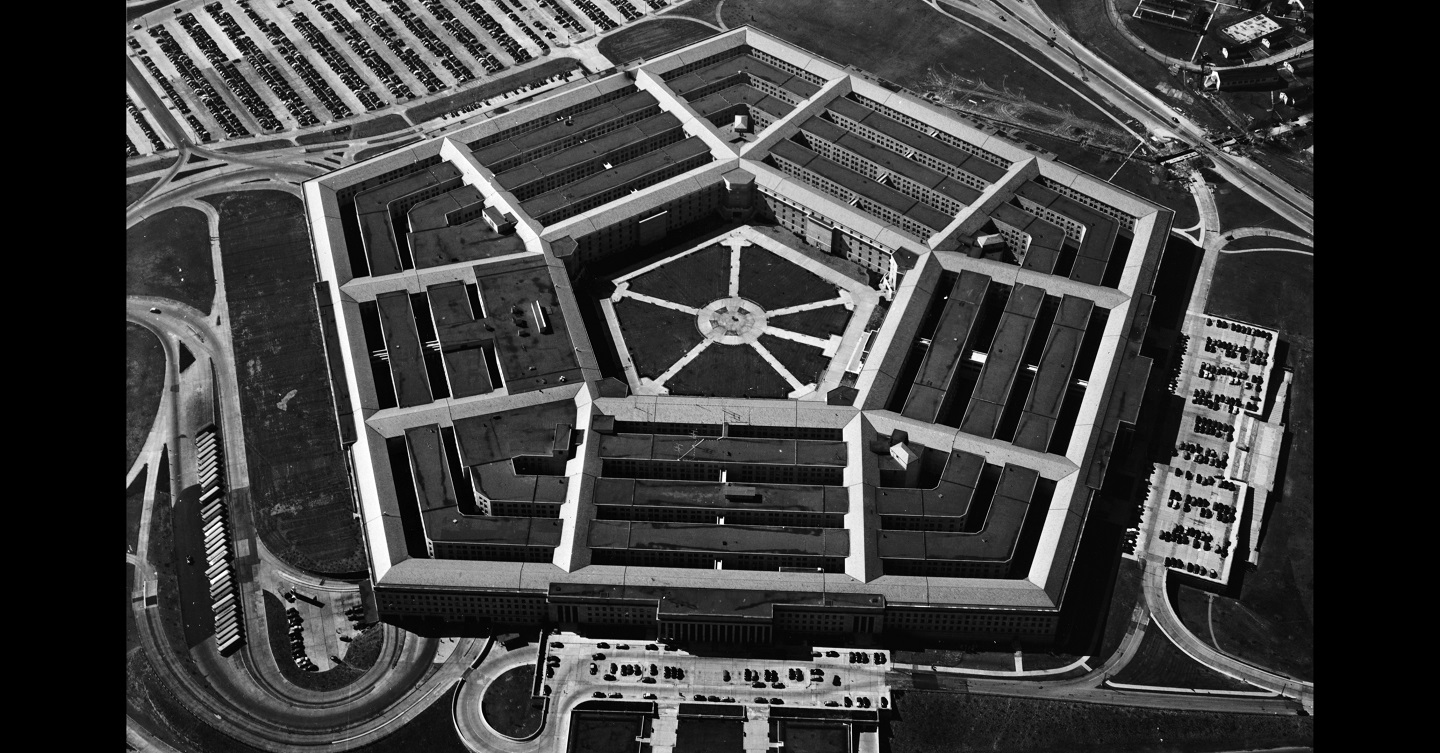
A few years ago, a member of the Secretary of Defense’s staff asked what I would tell a new staff-member returning to the Pentagon from a D.C. think tank. I offered the following story to differentiate between being “in government” and “observing the Pentagon” from the outside.
“Welcome back to the government and congratulations on your new position. It has been a few years since you left the previous administration. During that time, you have written some remarkably perceptive articles. Thought it might be useful for us to chat before you dive into the briefing books the staff prepared. So, I would offer three different sets of thoughts.
First my impressions on working in the Pentagon. Let’s start with your family. Wanted to make sure you have had that “important conversation” with your spouse and children. This position will likely preclude being home most mornings for breakfast and in the evenings for dinner. People underestimate the impact on your family given your lack of control over when you come and go. If you are mentally prepared for it, your spouse is onboard, and you can balance the work with showing up for your kids, it is doable, but it is not a trivial thing.
Next, welcome to the glass house. Please remember you are always being watched. Overnight you have become smarter, better looking and all your jokes will be funny. So be careful. Most everyone who knows you, or thinks they know you, will want something from you. That is just the way things go.
Your staff will enable all you do. Treat them well as many have seen 12 or more people cycle through your appointment, and a third that number of Secretaries. Benefit from their wisdom and experience by listening. Otherwise there will be those who tolerate you, those who patronize you, and those who ignore you, knowing they will outlast you.
Demonstrate restraint of both tongue and pen. Do not draft an email when angry. Instead handwrite that scathing note. Read it back to yourself and shred it. Before you send an email, ask how it would look in the Washington Post, the Wall Street Journal, or the New York Times. Because it could. Finally, think about how you will speak to the press. Your words could be edited, taken out of context, and used to support a pre-existing conclusion.
Regrettably the environment has become more splintered and noxious. This has created fissures, sharper elbows, assumed motives, and had the predictable effect of lowering morale and effectiveness when our generation needs to engage in and win a great power competition that threatens our values, way of life, and people.
Make a daily effort to build an apolitical culture of “One team, one fight.” Bring together your staff, form bonds with different organizations with competing agendas, and restore teamwork. You will be disappointed by those who spurn your outreach and those who respond with leaks and small-minded back-biting. But by rising above it and persisting in building a winning, positive culture, what you suffer will be a small price to pay for what you can accomplish.
In collaborating across the U.S. government, it is important to remember we are all honorable men and women trying to do an honorable job. So remember your role is to provide best analysis, advice, and multiple options, and when delegated to your level, to make decisions in accordance with stated policy.
Pause and reflect each week on where we stand as a nation. Where we have been, and to ponder on what we may yet become. Your efforts will make a difference for over 320 million U.S. citizens, and our allies, partners, and friends. Don’t lose sight of the greater good you are enabling.
Second, let’s contrast the Pentagon and D.C. think tank pace of decision making. Your article assessing the Strategic Policy Review was spot on. You probably gathered everything written on the review. Then took pages of notes and comments, before setting it aside to catch up on your regular work at the think tank.
A few weeks later you wrote what we did wrong and then edited it. In all it took 6-12 weeks to write the clearest and most concise article on the strategic policy review. You identified every mistake we made and with 20/20 hindsight explained how we should have done better.
Now, back to reality. Each morning you will have to make 12 bad decisions, based on incomplete information, before lunch. The easy decisions were made several levels below you. Delaying a decision won’t work, as our enemies will not wait for us. After eating lunch at your desk while you catch up on reading, each afternoon you will have 12 more bad decisions, based on incomplete information, to solve before you go home. Add to this impromptu meetings, phone calls, and open testimony before Congress and the press. This will continue seven days a week, 365 days a year, until you get sick, get fired, or quit.
Occasionally, someone will bring you a stunning piece of intelligence. That will enable our government to outmaneuver and disadvantage our enemies for months, if not years. All you must do is give a press briefing on a new policy that reverses the administration’s publicly stated agenda. As a result, the media will mock you. The opposition party will excoriate you, and you will never be able to explain why.
During this a member of the outgoing administration will spend 6 to 12 weeks researching one of your decisions and write an expose on your near-sighted, inept, and unimaginative thinking.
Congress will schedule closed hearings to discuss your decision-making in a classified setting. Unfortunately, it will be a midterm election year and they will shift to open hearings and ask “the American people want to know…what were you thinking?”
Hopefully, you kept notes on those decisions. As that was the day you also sat with the Secretary for a counterpart meeting and then got caught in the rain and attended both a National Security Council Deputies and Principals meeting. So you sat in the JFK Conference Room in your soaked clothes for 2 hours discussing classified topics.
Third, it’s my belief that we have a pivotal role in improving the civil-military relationship along three lines of effort. The first is focused on the OSD civilians. Who provide their corporate knowledge and ability to work the internal system from the lowest to the highest, across sections and across government as well as often into allies and partners. Please recognize that unlike those posted in and out with each administration, many OSD civilians are here for the long term and hence their horizon may differ.
The second line of effort applies to the very bright people coming from the Think Tanks. The OSD civilians read and absorbed the lessons from your article on the strategic policy review. But they are neither stupid nor incompetent as some may believe. Rather they are doing their level best to support you and your predecessors in juggling serious issues every day. They are neither out to stop you nor inherently against you. But to provide advice and guidance formed on the basis of a long experience in government. While some of that advice may not be palatable, nonetheless it is fairly and honestly given. As it is advice, it’s up to you whether you take it, but your openness and willingness to consider it, will serve you better than dismissing it because it comes from the professional civil service and therefore “must be wrong.”
The third line of effort applies to how to deal with your military counterparts and aligns with the other lines of effort. They are professionals and are not against you. Their advice is that. But listen to it rather than dismiss it as military bias. Try to learn military jargon and customs. It may be a foreign language, but you will be a more effective team if you understand them. This is fundamentally about mutual respect and effectiveness. You can strengthen the team by meeting weekly with your counterpart for lunch. Doing this in your or their office has multiple benefits. It creates an informal yet regular forum for quiet consultation and collaboration over a friendly meal. Also, meeting in your office enables you to quickly respond to emergent tasking — and to inform your counterpart immediately.
Finally three thoughts on working during COVID-19. First, what investments will you make so you and your team can do unclassified and classified work from home? Second, during the lockdown only 5,000 people were daily working in the Pentagon, with little noticeable impact. Please keep that in mind when we are asked to identify efficiencies. Third, how will you counsel and treat those who refuse vaccination?
So welcome back to the Pentagon. Good luck with your studying this weekend. The staff is “all-in” to get you ready for testimony. You have your first murder-board on Monday at 7 AM.”
Cathal O’Connor served 32 years in the Navy, commanding at the warship, squadron, and strike group level. In five tours in the Pentagon, he served on the staffs of the Chief of Naval Operations, the Chairman of the Joint Chiefs of Staff, and the Secretary of Defense. He works overseas in the National Security sector.
The views expressed in this article are those of the author and do not necessarily reflect those of the U.S. Army War College, the U.S. Army, the U.S. Navy or the Department of Defense.
Photo Description: The Pentagon, circa 1947.
Photo Credit: Library of Congress photo by Theodor Horydczak.





I was grinning while nodding my head in agreement as I read this.
Spot on. From experience, I’d add working with the Washington diplomatic community, Congressional staff and Representatives/Senators, and even state governments – dependent upon the issue. Admiral O’Connor’s comments should be included in any letter left upon the outgoing leader’s desk.
TRY THIS GIVE IT TO SOMEONE . IF YOU MAGNETIZE HANDGRENADES TO STICK TO TANKS OR TRUCKS USE ANY LAUNCHER TO LAUNCH THEY WILL STICK TO WHAT THEY ARE AIMED AT THAT IS METAL . OR THROWN AT . GIVE TO UKRAINE